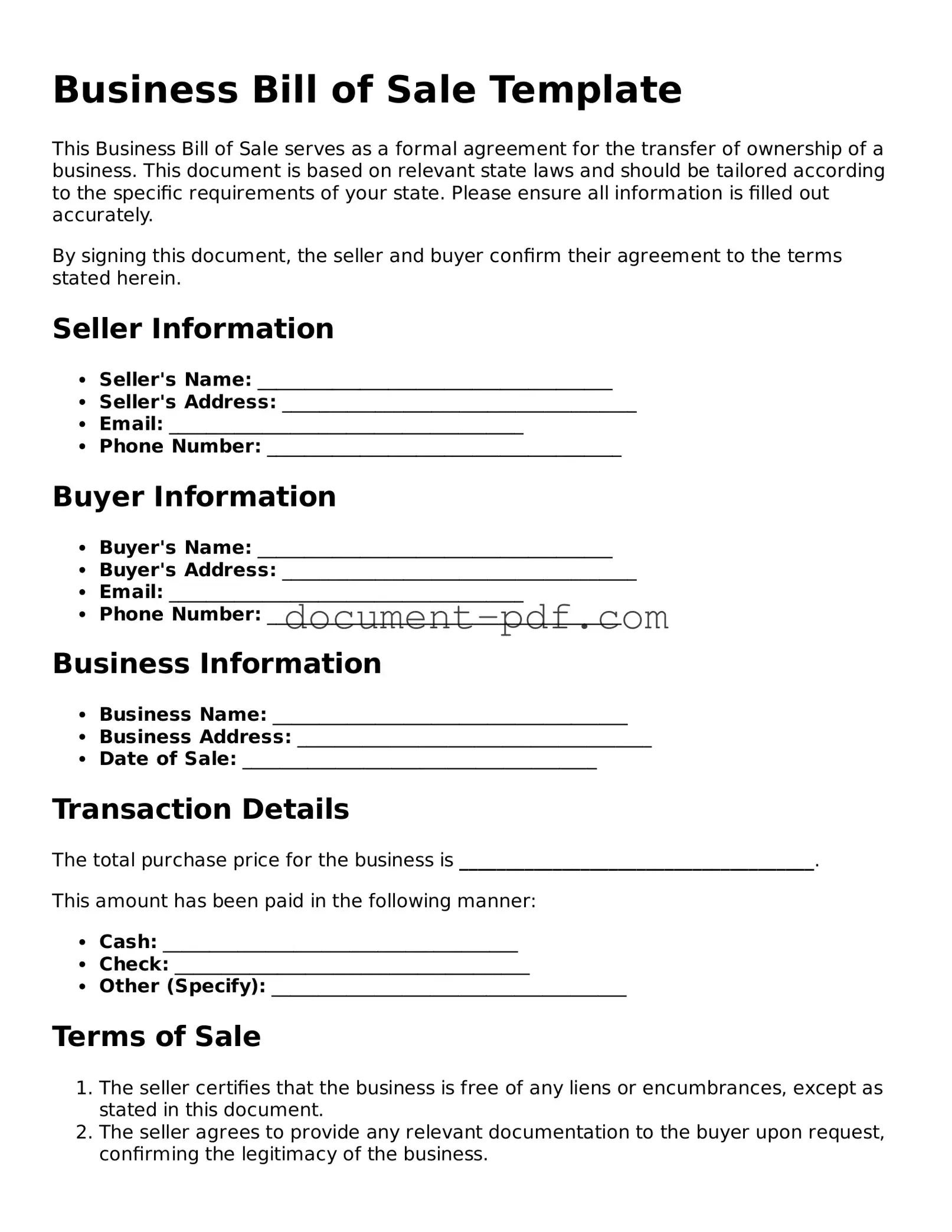A Business Bill of Sale is often compared to a Personal Bill of Sale. Both documents serve the purpose of transferring ownership of an item from one party to another. While a Business Bill of Sale typically pertains to the sale of a business or its assets, a Personal Bill of Sale is used for personal property transactions, such as vehicles or equipment. Each document outlines the details of the transaction, including the buyer and seller's information, a description of the item being sold, and the agreed-upon price.
The Vehicle Bill of Sale is another document similar to the Business Bill of Sale. This form is specifically designed for the sale of motor vehicles. Like the Business Bill of Sale, it includes essential details such as the vehicle's identification number (VIN), make, model, and year, along with the buyer and seller's information. Both documents act as proof of the transaction, ensuring that the buyer has legal ownership of the vehicle or business assets after the sale is completed.
A Real Estate Bill of Sale shares similarities with the Business Bill of Sale as well. This document is used when personal property that is attached to real estate, such as appliances or fixtures, is sold during a real estate transaction. Just like the Business Bill of Sale, it outlines the specifics of the sale, including the items being transferred and the terms of the agreement. Both documents help clarify what is included in the sale, preventing any misunderstandings between the parties involved.
The Equipment Bill of Sale is also akin to the Business Bill of Sale, particularly when it comes to the sale of business-related equipment. This document details the equipment being sold, including specifications and condition, and serves as a formal record of the transaction. Similar to the Business Bill of Sale, it protects both the buyer and seller by documenting the terms and ensuring that the buyer receives the equipment as described.
A Partnership Buyout Agreement can be compared to a Business Bill of Sale when one partner buys out another's interest in a business. This agreement outlines the terms of the buyout, including the valuation of the business and the payment structure. While the Business Bill of Sale focuses on the transfer of ownership, the Partnership Buyout Agreement provides a broader framework for how the transaction will take place, ensuring that all parties understand their rights and responsibilities.
In addition to various forms of sale agreements, individuals can access several resources to enhance their understanding of these critical documents. For instance, a comprehensive guide to the requirements of a Bill of Sale form is available at UsaLawDocs.com, which can further assist both buyers and sellers in navigating the complexities associated with asset transactions.
Lastly, a Franchise Disclosure Document (FDD) is relevant when discussing the sale of a franchise. While not a direct equivalent to the Business Bill of Sale, the FDD provides important information about the franchise system and the obligations of the franchisee and franchisor. Both documents are essential in the context of business transactions, as they ensure transparency and protect the interests of the parties involved. The FDD helps potential franchisees make informed decisions, while the Business Bill of Sale finalizes the ownership transfer of the franchise itself.

